On April 13, 2022, the sixth session of the "Asian Ocean Policy Series" was successfully held online by the Japan Research Center of Shanghai Jiao Tong University. Su Jinyuan, professor of the Institute of International Law of Wuhan University, director of the Public International Law Teaching and Research Section, chief expert of the Air Law and Outer Space Law Team of the International Institute of Rule of Law, and Cao Qun, associate researcher of the Marine Security and Cooperation Research Center of the Chinese Academy of International Studies, were invited as the keynote speakers, Yang Zhen, Deputy Director of the Northeast Asia Research Center of Shanghai University of Political Science and Law, and Chen Yong, Assistant Researcher of the Institute of International Studies of the Shanghai Academy of Social Sciences, participated in the meeting as interlocutors. Zheng Zhihua, associate researcher of Japan Research Center of Shanghai Jiaotong University, presided over the lecture. From Tsinghua University, the Marine Development and Strategy Research Institute of the Ministry of Natural Resources, Shandong University, Wuhan University, Fudan University, Zhejiang University, China University of Political Science and Law, Southwest University of Political Science and Law, China Ocean University, Xiamen University, Nanjing University, Sun Yat sen University, Shanghai Foreign Languages University, Dalian Maritime University, Shanghai Maritime University, Shanghai Institute of International Studies, Hainan University, Ningbo University, East China University of Political Science and Law More than 150 experts, scholars and graduate students from Zhejiang University of Foreign Languages, Shanghai University of Political Science and Law, Guoguan Think Tank and other institutions attended this series of lectures.
At the beginning of the lecture, Zheng Zhihua introduced the brief information of the keynote speaker and the interviewees, as well as the basic arrangement of the lecture content, and extended a warm welcome to the experts, scholars and students attending the lecture.
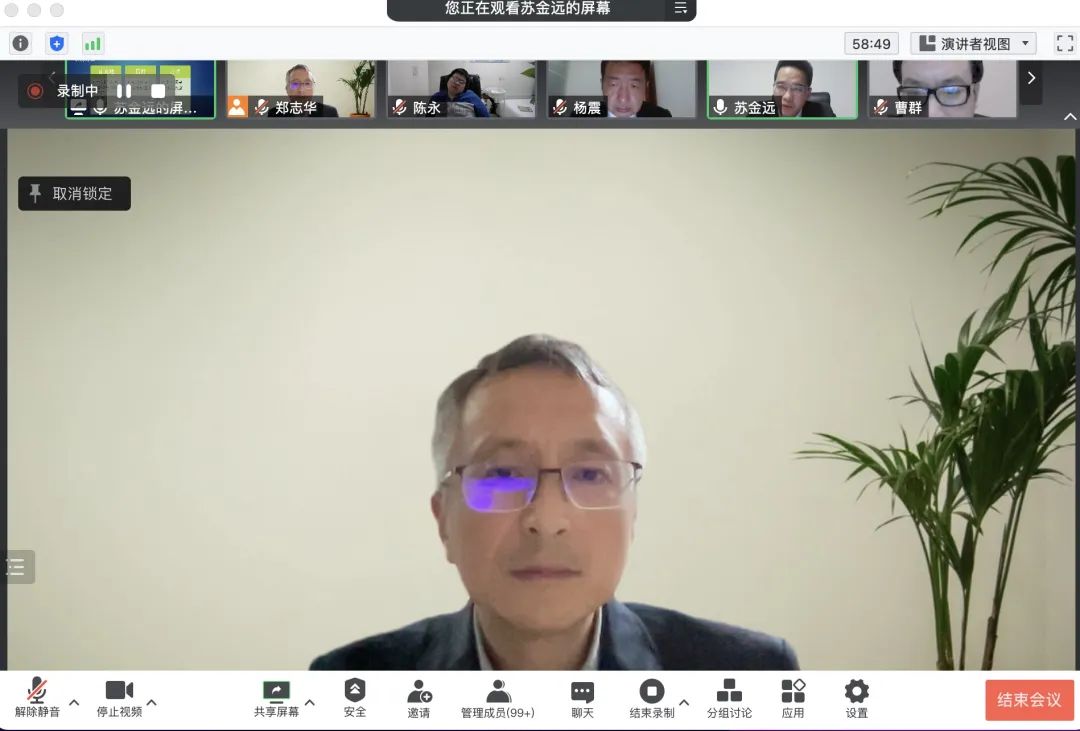
Zheng Zhihua, Associate Researcher of Japan Research Center of Shanghai Jiaotong University
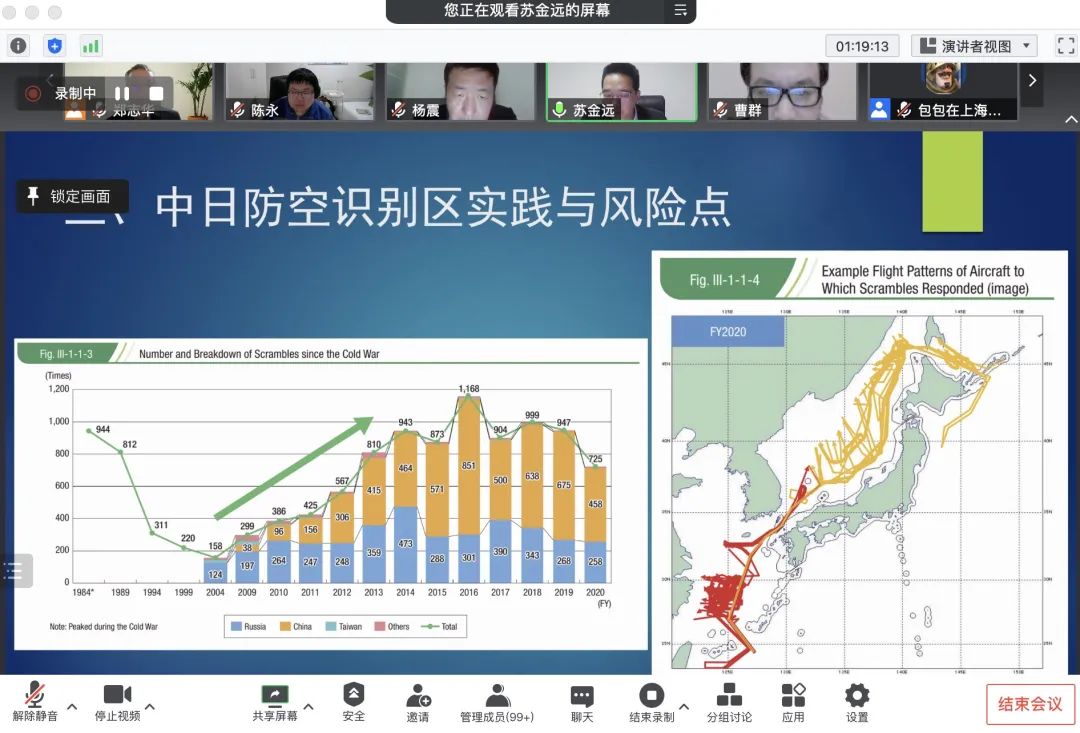
In the lecture, Su Jinyuan mainly focused on the national practice and legitimacy of the air defense identification zone. He introduced the national practice of the air defense identification zone worldwide and introduced the basic situation and relevant rules of the air defense identification zone (ADIZ) and flight information zone (FIR). On this basis, he explained the geographical scope, division time, identification method and identification object of the air defense identification zone with specific cases of the delimitation of air defense identification zones in various countries. Secondly, as for the legitimacy of the air defense identification zone outside the airspace, Mr. Su pointed out that on the basis of acknowledging that the requirements of the prohibitive provisions are not violated, it is necessary to further study from the perspective of customary international law and the principle of taking other countries into account. Among them, customary international law is more complex, which needs to consider the two aspects of state practice and legal certainty. He also explained the ambiguous issues under the current rules with specific cases. Finally, he made an in-depth analysis of practical problems and risk points existing between the air defense identification zones of China, Japan and South Korea, such as the delimitation of flight information zones, regional overlap, coverage of disputed islands and sea areas, and identification of aircraft that only pass through but do not enter the airspace, based on the actual situation of the air defense identification zones in Northeast Asia.
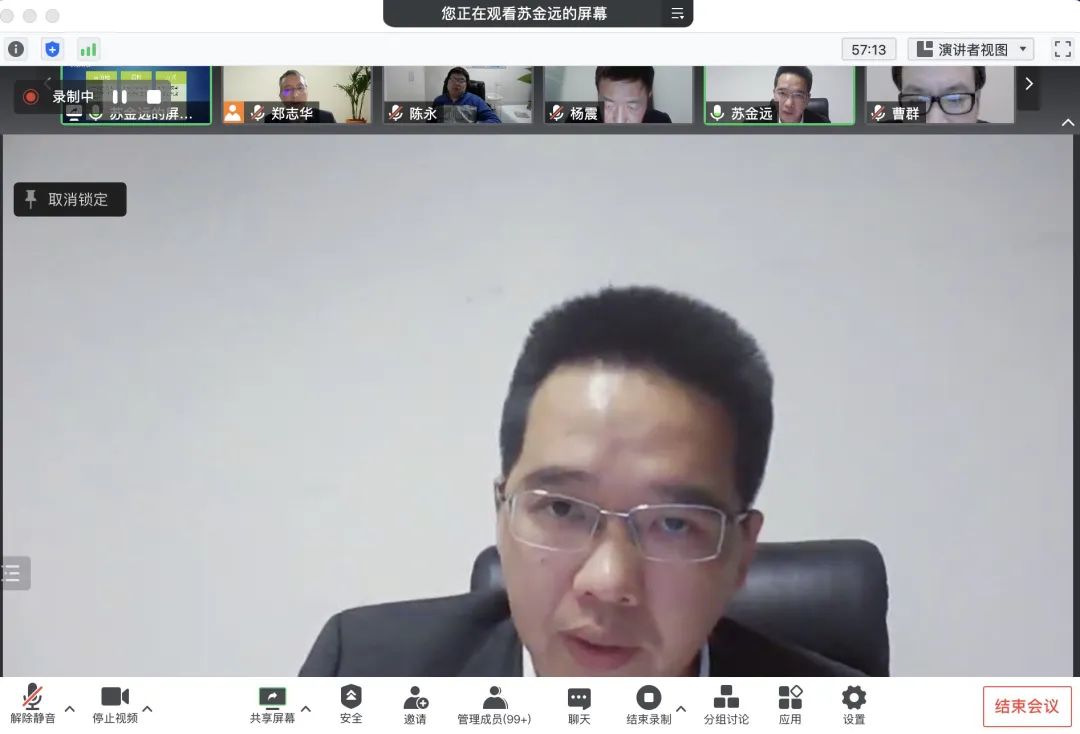
Su Jinyuan, Professor of the Institute of International Law of Wuhan University and Director of the Teaching and Research Section of Public International Law
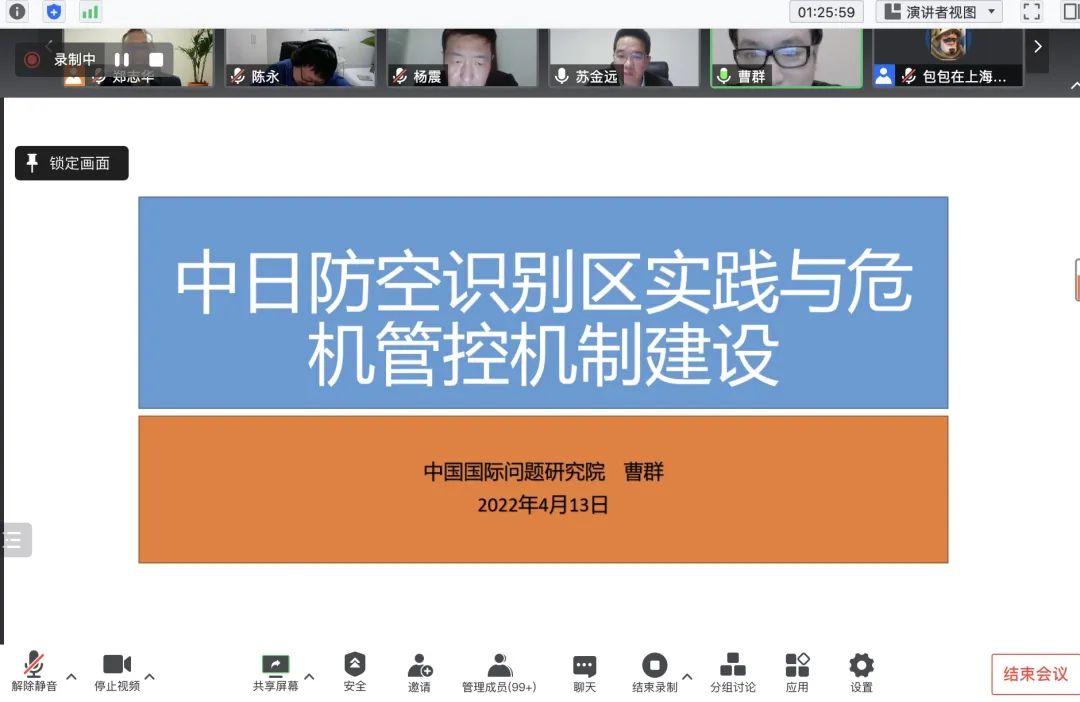
Cao Qun focused on the theme of China Japan air defense identification zone practice and crisis management and control mechanism construction. He started with the overlapping problem of China Japan air defense identification zone, especially Japan's "worry", and led to thinking about whether the crisis exists, whether Japan's concern is reasonable, and other issues. Secondly, he interpreted the applicable objects and applicable crossing conditions of the air defense identification zone rules, and believed that it was necessary to distinguish the applicable objects of the air defense target and the air defense identification zone rules. In addition, he also made a detailed comparison of relevant practices between China and Japan, and clarified the misunderstanding and misreading of China's air defense identification zone rules. As for the related crisis management and control issues, he pointed out that with the growth of China's strength, on the one hand, Japan has adopted "double standards" against China and other countries in the air defense identification zone; on the other hand, it is delusional to "intercept" China's normal military aircraft activities with "absolute safety", which makes pilots exhausted and easy to cause accidents. On this basis, he elaborated on the construction process of the Sino Japanese air sea liaison mechanism, the overall operation of the mechanism, the mechanism construction still in progress and other issues, and put forward relevant suggestions on the management and control of the air sea crisis in East Asia.
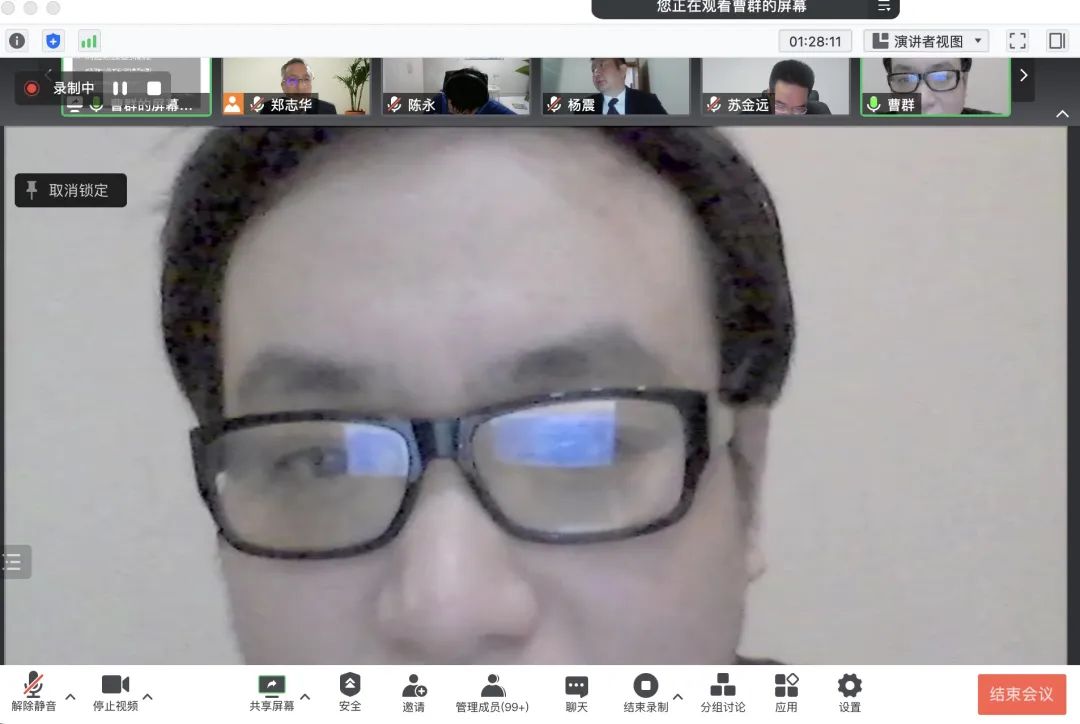
Cao Qun, Associate Researcher of Marine Security and Cooperation Research Center of China Academy of International Studies
In the discussion link, Yang Zhen combed the changes in the comparison of air power between China and Japan in the context of macro economic development based on historical development. He pointed out the rise of China's power and the decline of Japan's power based on important events. He believed that a country's air strength and monitoring capability were the bottom line for the division of aeronautical identification zones. Faced with the background that Japan's wrong defense policy led to the weakness of air power, he believed that we could take a positive attitude towards China's future foreseeable air strategy.
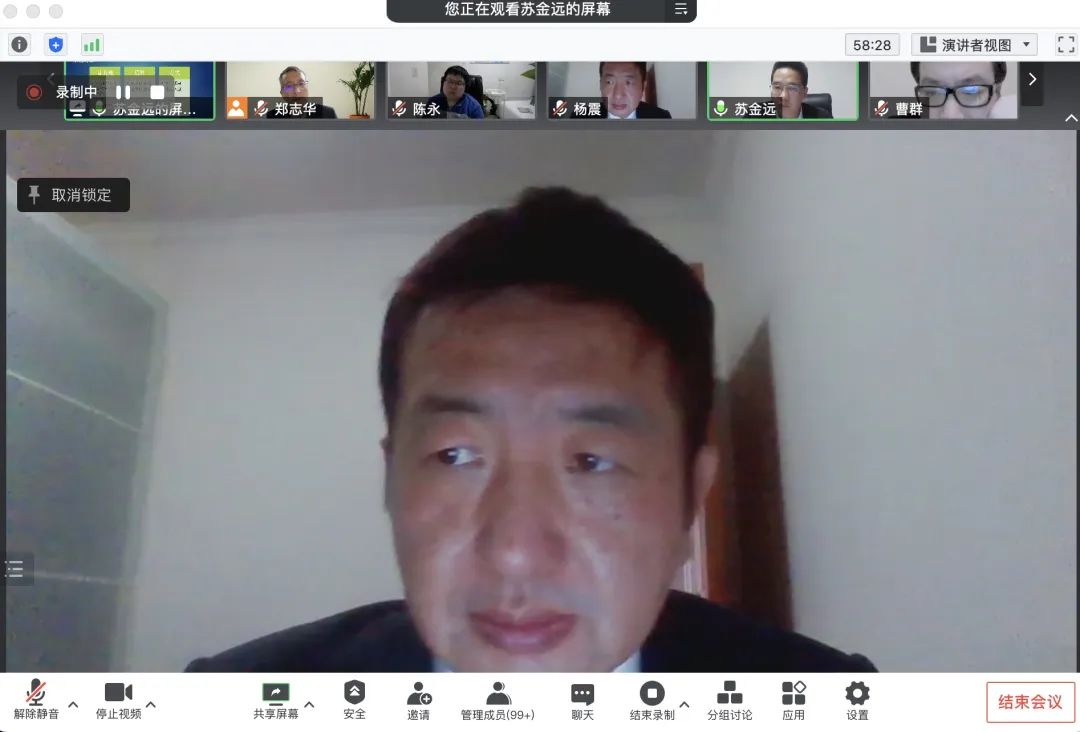
Yang Zhen, Deputy Director of Northeast Asia Research Center of Shanghai University of Political Science and Law, made a speech
Chen Yong put forward his own understanding of the status and future development trend of the air defense identification zone, pointing out that China and Japan will have a long-term battle with each other as the international airspace becomes more crowded, conflicts and risks between countries gradually increase, and China's ability to build air defense across the entire region extends. And he put forward his own views on relevant risk points: First, with the increase and intensification of the number of air encounters between China and Japan, there will be military conflicts such as emergency defense and disposal; Second, whether China's deterrence against Taiwan will produce a practical contest in the East China Sea region needs attention; Third, how to identify the problem of UAV; Fourth, the regulation of malicious acts in other situations, such as the code of military aircraft linked to civil aviation aircraft.
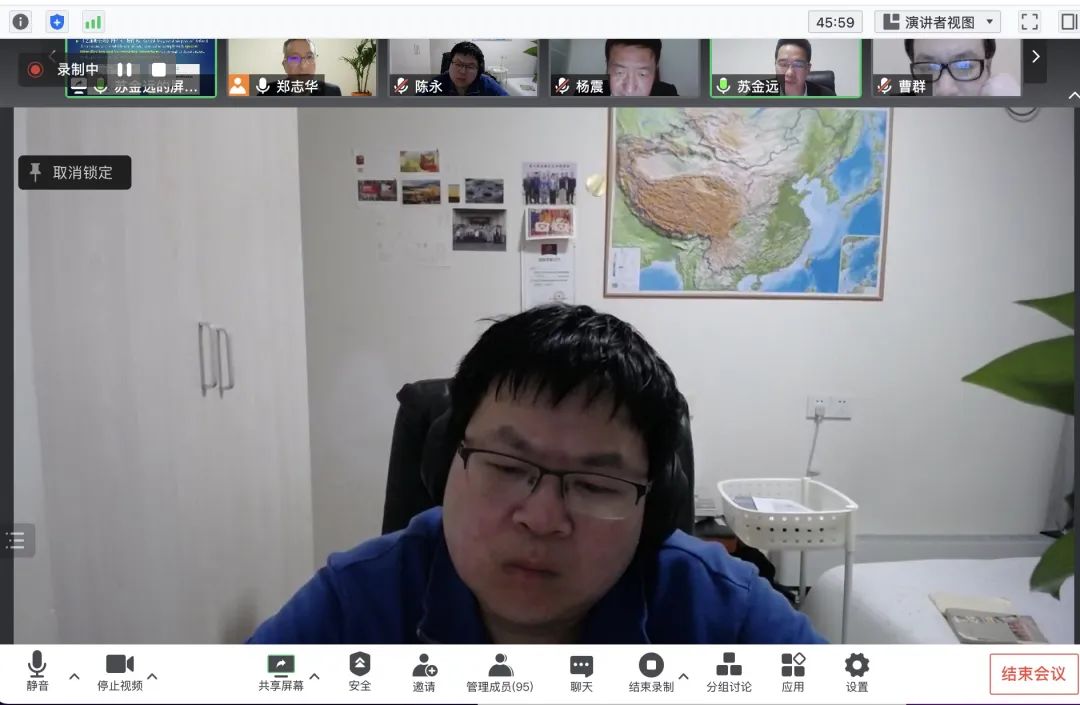
Chen Yong, Assistant Researcher of the Institute of International Studies of the Shanghai Academy of Social Sciences, made a speech
In the question and discussion session, teachers discussed in depth the issues of "UAV identification", "military aircraft masquerading as civil aircraft code", "whether the dispute between China and Japan can bypass the United States", and "how to deal with military aircraft camouflage". Teacher Su Jinyuan pointed out that the treatment of military aircraft after all-round camouflage based on the appearance and coding of civil aircraft can be mainly divided into two aspects: first, camouflage cannot change the military nature, and it can still be used as a military aircraft if there is corresponding evidence; Second, the right of States to self-defence under the Charter of the United Nations cannot be derogated from. Teacher Cao Qun pointed out that China should strengthen the identification of the act of camouflage of civil aviation, and carry out accompanying flight and radio communication. If the other party neither reported the flight plan nor refused to carry out radio communication, forced landing and displacement can be adopted.
Finally, Zheng Zhihua thanked the keynote speaker and the guests for their wonderful sharing. He pointed out that with the influence of such factors as the changes in the comparison of sea and air forces between China and Japan, the adjustment of policies, the cognitive defects of the other party's policy intentions and mutual distrust, and the intensification of the Sino US strategic game, the possibility of sea and air crises between China and Japan has increased significantly. For this reason, it is imperative to enhance communication and trust between each other, promote the construction of relevant crisis management and control mechanisms, and promote consensus on the rules of air defense identification zone. The wonderful lecture in the evening is not only a feast of knowledge, but also a clue to the direction of future thinking. He thanked the experts and scholars who participated in the discussion, as well as all the teachers and students who participated in the lecture, and looked forward to your continued attention to the series of lectures of "Asian Ocean Policy Series" held by the Japan Research Center of Shanghai Jiaotong University in the future.